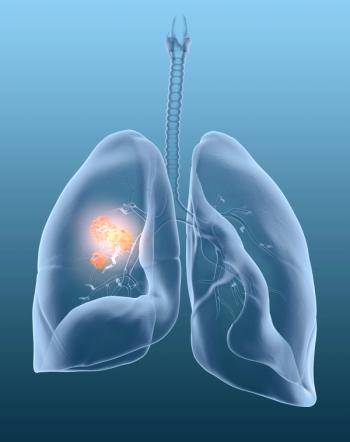
Compared with immediate prior therapy, selpercatinib resulted in a greater proportion of objective responses in patients with non–small cell lung cancer whose tumors harbor RET fusions.

Your AI-Trained Oncology Knowledge Connection!


Compared with immediate prior therapy, selpercatinib resulted in a greater proportion of objective responses in patients with non–small cell lung cancer whose tumors harbor RET fusions.

Pralsetinib was well tolerated, while demonstrating robust and durable anti-tumor activity when treating heavily pretreated patients with multiple RET fusion–positive advanced solid tumors.

Patients with pretreated KRAS p.G12C–mutated NSCLC experienced a continued durable clinical benefit with sotorasib.

For heavily pretreated patients with EGFR-mutated NSCLC resistant to EGFR TKIs, patritumab deruxtecan induced clinically meaningful and durable efficacy.

Some patients who progressed on osimertinib had a response to therapy with amivantamab and lazertinib, and these were seen regardless of known resistance mechanisms to EGFR inhibitors.

Patients with non-small cell lung cancer receiving alectinib did not have better results than patients receiving crizotinib.
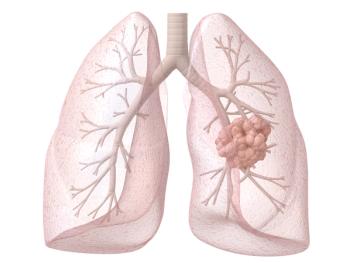
A phase 1 trial of the investigational agent CLN-081 indicates antitumor activity coupled with a tolerable safety profile as treatment of patients with non–small cell lung cancer and EGFR exon 20 insertion mutations.
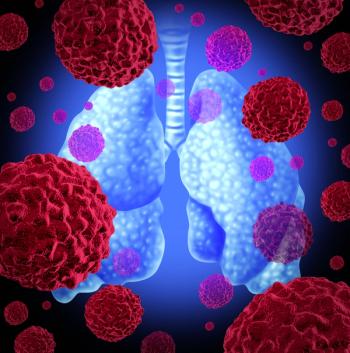
Two-year efficacy and safety data from a pivotal trial of nivolumab/ipilimumab plus chemotherapy as treatment of non–small cell lung cancer support the continued use of the combination.

Data presented at the 2021 ASCO Annual Meeting from the phase 3 PACIFIC trial show long-term survival benefit for patients with unresectable stage III non–small cell lung cancer treated with durvalumab following chemoradiotherapy.

A positive efficacy and safety profile persists with pralsentinib in RET fusion–positive non–small cell lung cancer, according to data presented at the 2021 ASCO Annual Meeting.
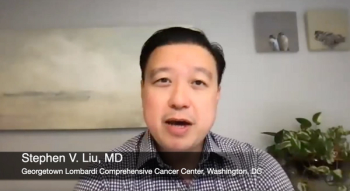
CancerNetwork® sat down with Stephen V. Liu, MD, at the 2021 American Society of Clinical Oncology Annual Meeting to talk about pralsetinib for patients with non–small cell lung cancer harboring RET fusions and adequate biomarker testing in the frontline.

Findings from the phase 3 IMpower010 trial support the use of atezolizumab as adjuvant therapy for patients with stage II to IIIA non–small cell lung cancer.

Patients with chemotherapy-naïve, locally advanced, or metastatic non-small cell lung cancer who were treated with tiragolumab plus an anti-PD-L1 agent showed better efficacy versus single-agent checkpoint inhibitor therapy alone.

Fam-trastuzumab deruxtecan-nxki (Enhertu) showed favorable clinical activity with a high objective response rate and durable responses in patients with HER2-mutated non-small cell lung cancer.

The study demonstrated modest survival benefits in patients with extensive-stage small cell lung cancer who received the combination of pembrolizumab and etoposide plus platinum (EP).
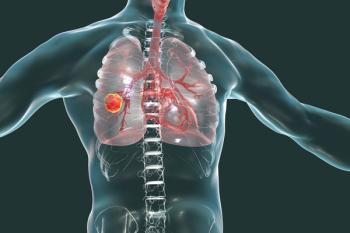
The addition of durvalumab to standard chemotherapy continued to demonstrate an improvement in overall survival for patients with treatment-naïve extensive-stage small cell lung cancer.
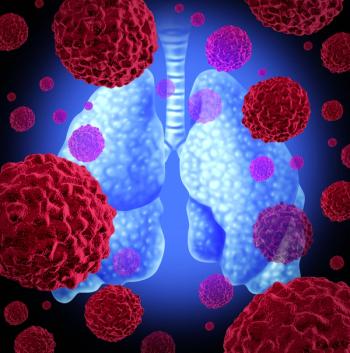
Combining tislelizumab with chemotherapy improved progression-free survival compared with chemotherapy alone as a frontline treatment in Chinese patients with advanced squamous non-small cell lung cancer.

Tepotinib demonstrated durable clinical activity in patients with locally advanced or metastatic non-small cell lung cancer who harbor a MET exon 14 skipping mutation identified through liquid or tissue biopsy.

The updated findings indicated that alectinib demonstrated a clinically meaningful improvement in overall survival compared with crizotinib in patients with ALK-positive non-small cell lung cancer.

Overall survival (OS) benefit derived from frontline treatment with nivolumab plus ipilimumab combined with 2 cycles of platinum-doublet chemotherapy in patients with metastatic or recurrent non-small cell lung cancer was further improved after at least 12 months of follow-up.

Frontline treatment with nivolumab plus ipilimumab induced durable and long-term efficacy, compared with chemotherapy, in patients with advanced non-small cell lung cancer, regardless of PD-L1 expression.

Phase III data, presented at the 2020 ASCO Virtual Scientific Program, showed that treatment with osimertinib dramatically improved disease-free survival compared to placebo for patients with EGFR-mutated advanced NSCLC.

Chemotherapy use in patients with lung and other thoracic cancers who are also diagnosed with COVID-19 was found to be associated with an increased risk of death compared to other treatment methods.
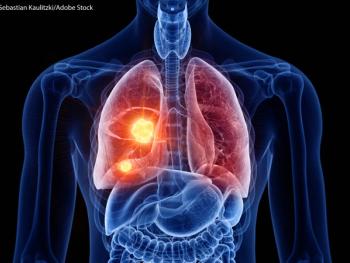
Those who quit smoking, which can span as far out at 2 years prior to a lung cancer diagnosis, have increased chances of survival, compared with those who continue to smoke.
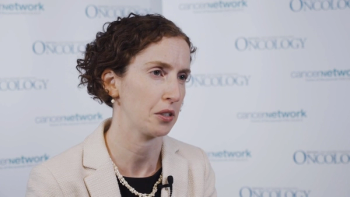

Cancer Network spoke with Karen L. Reckamp, MD, of City of Hope, about the link between several gene mutations and lung cancer in smokers vs nonsmokers.
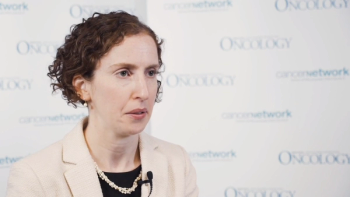
Cancer Network spoke with Anna F. Farago, MD, of Massachusetts General Hospital, about the effect of trilaciclib on myelosuppression in patients with previously treated extensive-stage small-cell lung cancer receiving topotecan.

Cancer Network spoke with Kathryn Cecilia Arbour, MD, of Memorial Sloan-Kettering Cancer Center, about the most recent research on checkpoint inhibitors in oncology.
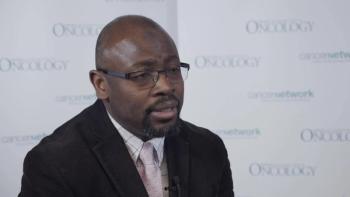
Cancer Network spoke with Taofeek Kunle Owonikoko, MD, PhD, of Emory University, about talazoparib for patients with HRRD-positive stage IV squamous cell lung cancer.

Cancer Network spoke with Suresh S. Ramalingam, MD, of Emory University, about pemetrexed, bevacizumab, or both for advanced non-squamous NSCLC.